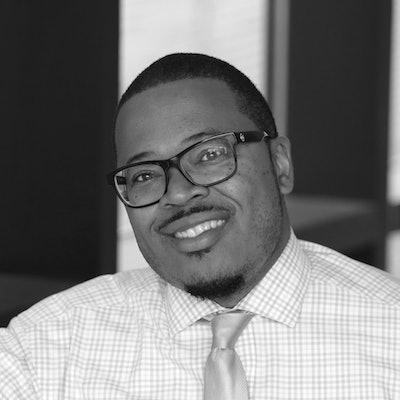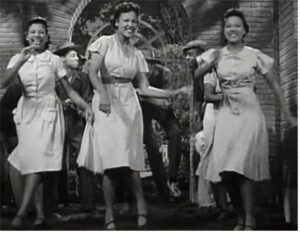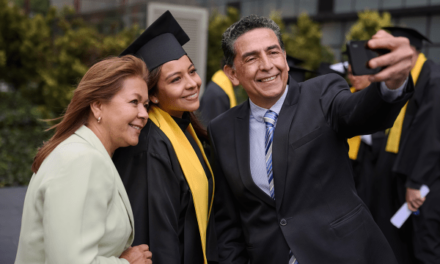By Drs. Erik M. Hines, Donna Y. Ford, Edward C. Fletcher Jr, Renae D. Mayes & Tanya J. Middleton
Social media is neither honest about nor friendly toward Black males in P-12 and higher education. The hostility is blatant and polemic. Our work challenges these deficit-oriented narratives. We see the brilliance and potential in our Black males at all stages of their academic development, even before entering preschool and kindergarten.  Dr. Erik M. Hines
Dr. Erik M. Hines
First, let us recognize the brilliance that Black boys and men contribute to the innovation of the United States and abroad. One of our historical pioneers, Garret Morgan, created what is now known as the gas mask and the traffic light. More recently, Moziah “Mo” Bridges, a young entrepreneur, created a bowtie company. It is clear that Black males possess gifts and talents that have added value to improving the quality of life globally. Moreover, Hines, Fletcher, and Moore (in press) have noted, “Since the early 2000s, Black men and boys have garnered increasing attention in the education theoretical and scientific literature” (p. 1). Scholars and numerous peer-reviewed journals have dedicated special issues on the topic of Black men and boys. These special issues include the Journal of Women and Minorities in Science and Engineering (Hines, Fletcher, & Moore, 2023) as well as:
…Urban Education (Gordon, 2003), The Journal of Men’s Studies (Moore & Herndon, 2003), Teachers College Record (Jackson & Moore, 2006; Warren, Douglass, & Howard, 2016), American Behavioral Scientist (Jackson & Moore, 2008), Boyhood Studies (Fergus & Bennett, 2018), The Journal for Specialists in Group Work (Steen & Hines, 2020a, 2020b), Professional School Counseling (Moore, Hines, & Harris, 2021), School Psychology Review (Woods, Heidelburg, Collins, Murphy, & Graves, 2023), and the Journal of Multicultural Counseling and Development (Burt, Hines, & Moore, 2023)… (Hines, Fletcher, & Moore, in press, p. 1).
In schools across the nation, there has been a heightened awareness of the need for students to earn postsecondary degrees – as there is substantial evidence that it leads to better labor market outcomes and a higher quality of life. At a societal level, the United States’ economy depends on a skilled workforce, particularly given the rapidly changing technological landscape. Yet, there are still large disparities in postsecondary degree attainment for Black males (Espinosa et al., 2019; Monarrez & Washington, 2020). In the P-12 education system, Black males have lower graduation rates in high school, are underrepresented in accelerated programs (e.g., gifted and talented); conversely, they are significantly overrepresented in special education, and in-school discipline and suspension rates (Ford & Moore, 2013; Hines et al., 2021; Reeves, 2022; Villavicencio, 2023). To note, Black males have the highest unemployment rate in the nation. In postsecondary institutions, they often have difficulty with:
● the transition from high school to college, support from faculty,
● understanding how to effectively study for introductory college courses in Science, Technology, Engineering, and Mathematics (STEM),
● navigating their college or university for resources,
● obtaining enough financial aid to pay for tuition and related expenses
● changing or choosing a major which may impact their time to graduation, and
● and graduating as they have the lowest graduation rate compared to their peers.
These concerns are not new; Tinto’s (1993) and Tracey and Sedlacek’s (1984) groundbreaking studies and theoretical scholarship remain relevant today. We have a long way to go to achieve equity in the academy for Black males.
Some of the reasons for the aforementioned disparities include the historical context of Black males being adultified, seen as superhuman or developmentally older, which robs them of being children. Additional barriers to academic success include lower teacher expectations, lack of referrals to accelerated courses, attending under-resourced schools, and dealing with racial and psychological trauma. Black males are further disadvantaged and marginalized due to being labeled and stereotyped as intellectually inferior to their racial and gender counterparts. Generalizations about Black males also include laziness, criminal-mindedness, and perpetrators of violence. These stereotypes, unfortunately, propagate the narrative that Black males are incapable of success and undeserving of such opportunities in post-secondary education. All of this colludes by impacting Black males’ academic motivation, aspirations/goals, and academic and vocational self-efficacy and agency. The systemic racism and educational oppression encountered limit the educational possibilities for Black males.
Although the literature and popular media are replete with the ‘deficits’ of Black males, there is information that shows how Black men and boys have thrived to achieve educational attainment, as well as key indicators that have contributed to their academic success. Their resilience is clear – achieving in spite of the mountainous barriers and hurdles. In the spirit of advocacy and asset-based philosophies, we share examples of factors contributing to the success of Black males in both P-12 and postsecondary institutions.
Recommendations for Nurturing the Brilliance of Black Males
- Ensure that Black male voices are centered in conversations on academic and college support (Harper, 2012). What questions unique and specific to their lived experiences do they have? If we ask and listen, they will speak up. Involve families in the college-going process. Get them involved during meetings and offer professional development that educates and empowers. Then, as our partners, they can better support their sons.
- Teach Black males and their families about the hidden curriculum (e.g., how to interact with professors and respond appropriately to intrusive questions – especially around race, etc.) in order to be successful in college. Make the hidden curriculum obvious so that Black families and their sons can take the necessary steps to challenge low expectations, stereotypes, hostility, and racial profiling.
- Encourage and advocate for Black males to pursue dual enrollment and other accelerated course/program options in high school to provide access and help equalize and narrow postsecondary education matriculation disparities.
- Create academic and career plans that align with the readiness for postsecondary opportunities that match the interests, gifts, and fit of Black male students in P-12. School counselors can facilitate this by having Black males take career assessments such as the O’Net Interest Profiler, and ensure they are taking rigorous coursework in preparation for postsecondary options such as a college/university.
- Partner with community members, especially Black men, to serve as mentors and role models in the college-going and transition process.
- Support Black boys’ socioemotional development to improve their readiness and maturity for postsecondary opportunities.
- P-12 school systems should partner with local colleges, universities, and vocational schools to facilitate visits to demystify the postsecondary experience.
- At the college level, ensure that Black males are introduced to living and learning communities, study abroad, and affinity programs such as a Black/African American cultural center (Hines et al., 2023).
- Acclimate collegiate Black males to the campus career center for employment, internship, and skill development opportunities.
- Ensure that Black males and their families fully understand the financial aid process from expected family contribution (EFC) to knowing the ramifications of student loans and maximizing opportunities to get scholarships as a college student, especially for majors that have an underrepresentation of Black men such as educator preparation programs and STEM.
We employ readers to become agents of change for Black boys and men. This means earnestly advocating for equitable academic and vocational goals — rigorous, culturally responsive, and anti-racist — for this underestimated group of students.
Dr. Erik M. Hines is a Professor in the Division of Child, Family, and Community Engagement at George Mason University
Dr. Donna Y. Ford is a Distinguished Professor of Education and Human Ecology at The Ohio State University
Dr. Edward C. Fletcher Jr. is a Distinguished Professor of Education and Human Ecology at The Ohio State University
Dr. Renae D. Mayes is an Associate Professor of Counseling at the University of Arizona
Dr. Tanya Middleton is a Clinical Assistant Professor of Counselor Education at The Ohio State University




